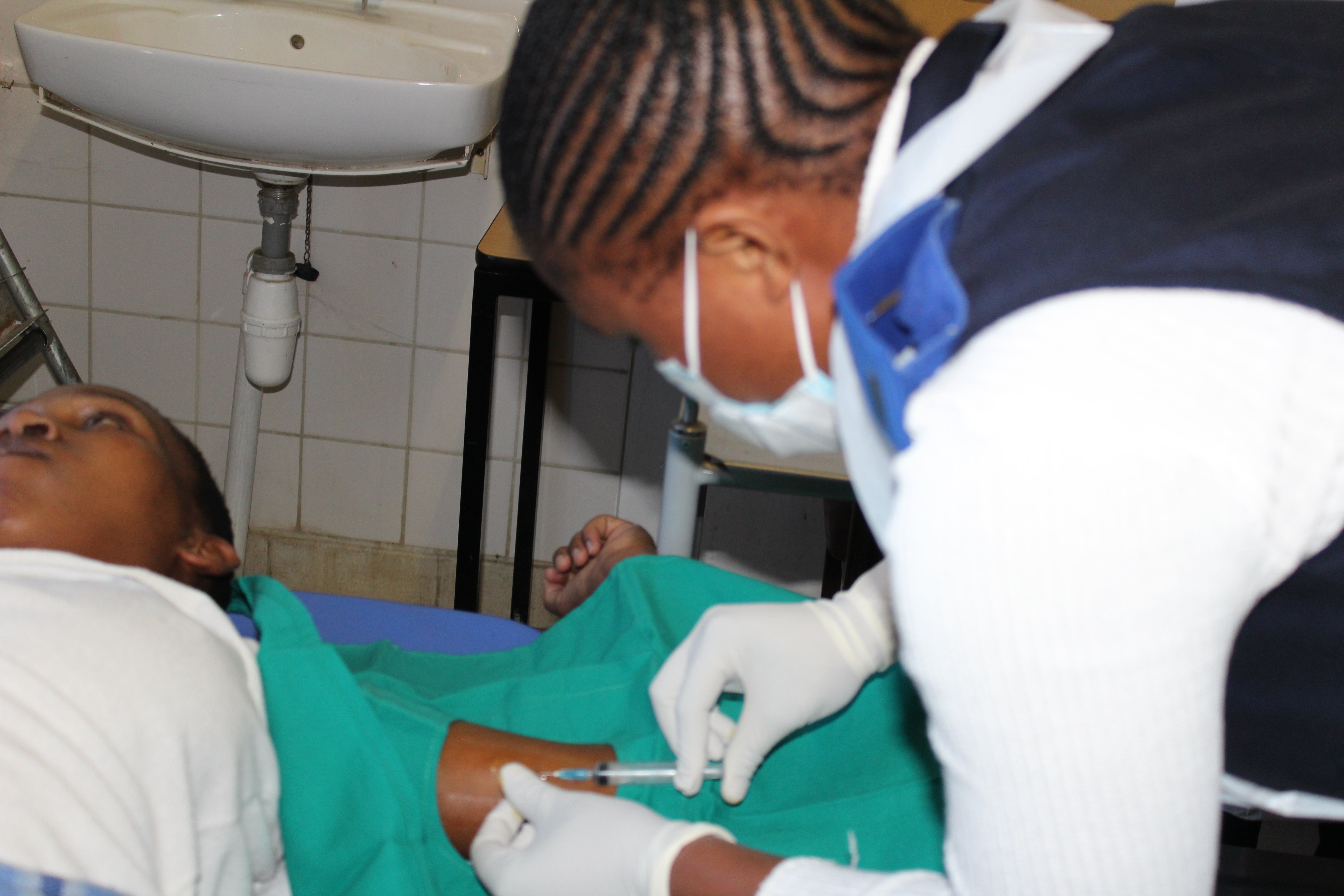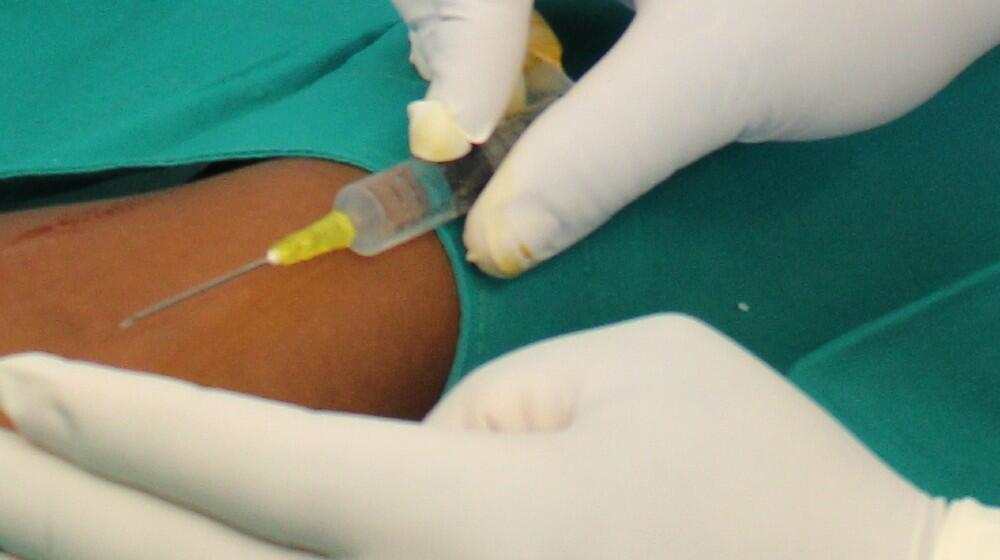After delivering her fifth child at Motebang Hospital in Leribe district, 33-year-old ‘Mathabo*decided together with her husband, to immediately start using contraceptives to avoid an unplanned pregnancy. A day after the birth, whilst still in hospital, she inserted the contraceptive implant – Implanon.
She was at the hospital to deliver her baby during introduction of immediate postpartum family planning by the Ministry of Health, under the support of UNFPA, the United Nations Population Fund. The initiative began in Qacha’s Nek and Mokhotlong last year and was implemented in Butha- Buthe and Leribe districts in August this year.
“I will now be able to raise my children well without fear of falling pregnant and will not have to miss work to go for family planning services regularly because the implant will last three years,” she said.
Women like ‘Mathabo, who work at the garment factories in Lesotho, often have their pay cut for days on which they miss work, due to the no work, no pay policy at the factories.
|
“I am going to encourage others to use the implant as it is long term”
|
My husband had actually asked me to find a suitable method of family planning and this is it. I am going to encourage others to use the implant as it is long term and to also not listen to those who give them false information.”
Thato* also inserted the implanon after giving birth at Motebang hospital. She was happy that since the method is long term (three years), she would save money as she would make fewer visits to the clinic. “I was using another method of family planning but because it had run out of stock I stayed without any contraceptive for six months, that is when I fell pregnant,” she pointed out.

UNFPA is supporting Lesotho in introduction of postpartum family planning - the initiation and use of family planning services immediately after childbirth and within the first 12 months following childbirth to reduce maternal and infant morbidity and mortality by preventing unplanned and unwanted pregnancies and to reduce unmet need for family planning among post-partum women.
As the Sexual and Reproductive Health Manager at the Ministry of Health Ms Motsoanku ‘Mefane stated, the intention is to strengthen program implementation of family planning and eventually contribute to FP indicators, create more opportunities for women to initiate family planning methods before they leave the health facility and sharpen service providers’ skills and competences on FP.
“Also, we want to offer them the family planning services while they are still at the health facility after child birth because they may face many different challenges that may refrain them from getting back to the facility for family planning after they leave,” she added.
Increasing Contraceptive Use
Since the initiative to offer modern contraception services as part of care provided during childbirth is expected to also increase contraceptive use and reduce both unintended pregnancies and pregnancies that are too closely spaced, it is considered to be even more advantageous to adolescents and young people.
According to a Nurse working at the Adolescent Health Corner at Motebang hospital Ms ‘Makhauta Litaolana, the introduction of postpartum family planning will help in reducing unintended pregnancies which sometimes lead to illegal abortions that are also sometimes fatal to young people. Recent data obtained from one hospital covering the first quarter (January – March) of 2019, 2020, 2022 revealed that the percentage of obstetric and gynaecological admissions due to abortion were highest among adolescent girls aged 10 -14 at 35.71 percent.
The health workers were also refreshed on modern contraceptives to enhance their knowledge and skills during the orientation on postpartum family planning in Butha-Buthe and Leribe hospitals. One of the key aspects of postpartum family planning is to promote long-term methods and less used methods of FP such as IUCD with a particular interest to increase uptake.
*Not real name


